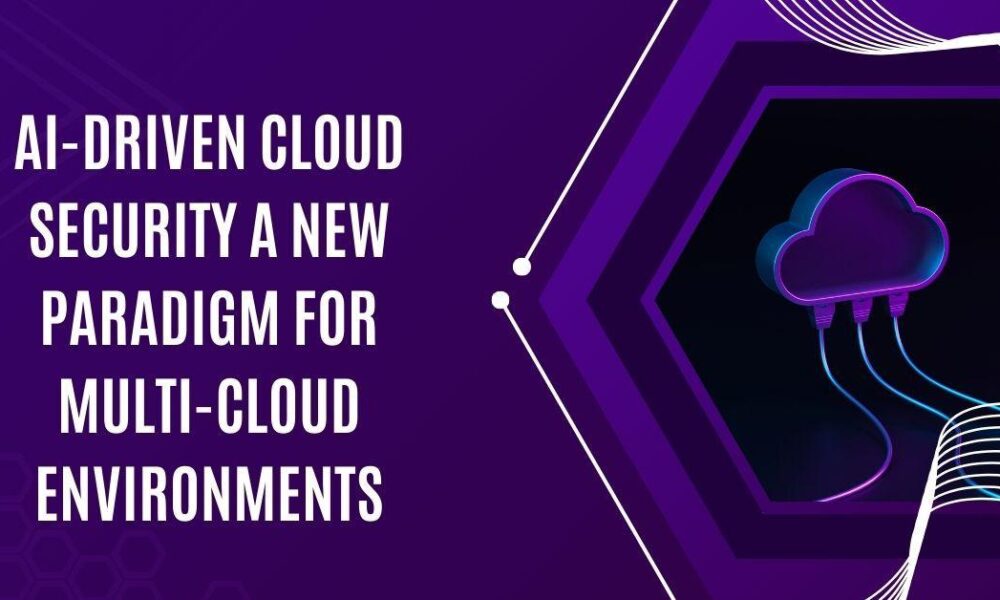AI-Driven Cloud Security: A New Paradigm for Multi-Cloud Environments

In this modern era, the adoption of multi-cloud strategies has transformed how organizations manage infrastructure, but it has also introduced unprecedented security challenges. Srinivas Reddy Cheruku, a researcher specializing in cloud security and artificial intelligence, examines the role of AI-driven Cloud Security Posture Management (CSPM) in addressing these challenges. His work highlights how advanced AI systems are redefining cloud security, enabling organizations to achieve improved threat detection, automation, and compliance in complex multi-cloud environments. These innovations are helping enterprises safeguard their critical assets while maintaining agility in rapidly evolving digital ecosystems.
Understanding the Complexity of Multi-Cloud Security
Multi-cloud environments have become the norm, with 87% of enterprises adopting this strategy to enhance their operational capabilities. However, managing the security of such distributed infrastructures is increasingly difficult. Organizations handle an average of 832 applications, spanning multiple providers and regions, with 71% of these applications requiring unique security controls. Research shows that traditional manual security approaches result in delays of 197 minutes for detecting critical incidents, underscoring the need for more adaptive solutions. Advanced AI-driven tools are now bridging this gap, providing faster, more accurate security management across multi-cloud systems.
The Role of AI in Cloud Security
AI-driven CSPM frameworks address these challenges by automating security processes and enhancing visibility across distributed environments. Machine learning algorithms process an average of 3.2 million security events daily, enabling organizations to detect threats in real-time. AI-powered systems reduce the mean time to detect (MTTD) incidents by 73% and decrease false positive rates by 67%, delivering significant improvements over traditional methods.
Predictive Security Intelligence: Anticipating Threats
Predictive security intelligence is a transformative approach enabled by AI. Machine learning models analyze historical data, current configurations, and emerging threats to forecast vulnerabilities with unprecedented accuracy. This capability allows organizations to proactively address risks, reducing potential exploits by up to 73%. Predictive analytics also enhance compliance by identifying policy violations before they escalate, ensuring continuous adherence to regulatory requirements.
Automation: The Key to Efficient Security Management
AI-driven CSPM frameworks automate critical security tasks, reducing manual interventions by 82%. These systems dynamically adjust firewall configurations, deploy temporary security patches, and isolate compromised segments within milliseconds of detecting threats. Automated workflows improve incident response times by 94%, ensuring minimal disruption during potential security breaches. This level of automation transforms cloud security from a reactive discipline to a proactive defense mechanism.
Enhancing Compliance with Intelligent Systems
Compliance is a significant concern in multi-cloud environments, with organizations adhering to an average of 8.3 regulatory frameworks. AI systems simplify compliance by continuously monitoring security controls and generating automated audit reports. These systems reduce audit preparation times by 85%, enabling faster responses to regulatory inquiries and minimizing non-compliance risks.
The Future of AI-Driven Security
The future of cloud security lies in the integration of emerging technologies like blockchain, enhanced machine learning models, and predictive analytics. Blockchain enhances transparency and security in data transactions, while advanced AI algorithms achieve a 97% accuracy rate in detecting anomalies. Real-time correlation across multiple providers enables organizations to maintain consistent security controls, even in fragmented environments. These advancements position AI-driven CSPM as a critical component of future-proof cloud infrastructure.
Benefits of Intelligent Cloud Security Frameworks
Organizations implementing AI-driven CSPM frameworks report significant benefits, including a 55% reduction in operational costs and a 62% decrease in security risks associated with misconfigurations. Automated processes allow IT teams to focus on strategic initiatives rather than routine monitoring, significantly enhancing productivity, operational efficiency, and resource utilization. These systems provide not only enhanced security but also measurable financial, operational, and compliance improvements across multi-cloud environments.
The integration of AI-driven CSPM represents a pivotal advancement in multi-cloud security architecture. This technology not only addresses current security challenges but also paves the way for next-generation cloud infrastructure protection. As organizations continue to expand their digital footprint, the convergence of AI, blockchain, and advanced analytics will enable more sophisticated threat prevention capabilities. These innovations promise to revolutionize how enterprises approach security governance, creating self-healing systems that can adapt to emerging threats in real-time. Srinivas Reddy Cheruku’s research contributions in this domain underscore the critical importance of intelligent automation in building resilient cloud ecosystems that can support the next wave of digital transformation.





